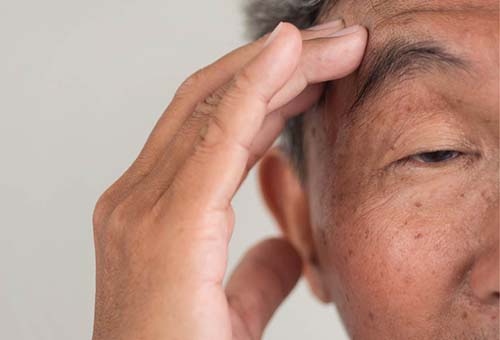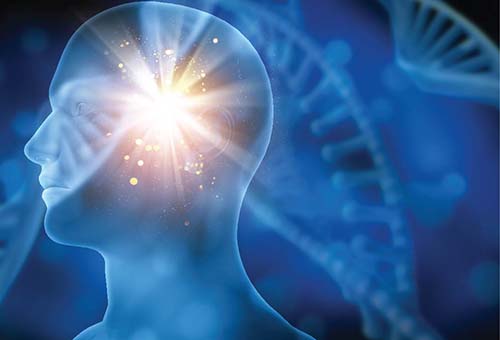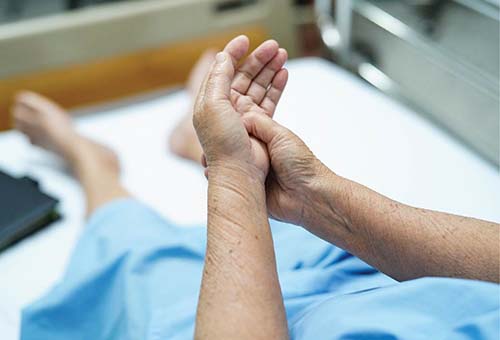Parkinson's Disease is a degenerative condition of brain cells. The Substantia Nigra Pars Compacta, which controls movement and produces a neurotransmitter called Dopamine holds the key to a shaking of limbs of a person suffering from Parkinson's. Parkinson's disease is most common in people aged 50 and over. If not treated, most sufferers will also experience Alzheimer's.
Other symptoms
-
Very slow steps upon getting up and walking from a sitting position. However, once walking, the pace will get steadier.
-
It is difficult to stop when you start walking and will not be able to stop immediately. Sufferers must slow down the walking pace in order to be able to stopped.
-
Parkinson's patients take short steps while walking.
-
Trembling of the hands while sitting still, but shaking stops upon movement like walking.
-
Stiffness in the face makes it hard for sufferer to show facial expression.

Causes
1. Toxins accumulate in the body, such as MSG, insecticides and heavy metals
2. Arterial hardening caused by fatty calcification. This resulted in the narrowing of the blood channel, causing poor circulation. As a result, brain cells receive oxygen and nutrients later than usual.
3. Chemicals accumulate from side-effects of many drugs. Effects of medication, such as taking several types of anti-hypertensive drugs, sleeping pills, some NSAID drugs and many other chemical based drugs.

Integrative medical
At Absolute Health, we will focus on determining the main cause of the disease. Patients general will undergo general treatment while our team investigate the core of the symptoms. Therefore, our diagnostics is a combination of tests (checking of inflammation of the blood vessels, MRI scans, brain scans) which includes physical and heavy metal testing plus the information through patient interview and medical history.
We have various treatment pathways and protocols that have been proven to be effective. Glutathione titration has an important effect called intrinsic mechanisms. It has the capability of stimulating neurodegeneration-cell repair that can directly target the cells in the stem part of the brain.
If patient complies strictly according to the doctor's treatment plan, gradual improvement to the symptoms can be seen. Within 6 months, we are able to see changes in the patient's mood plus facial expression. In addition, patient’s movement will also improve and in time together with a combination of recommended therapies, can be back to normal. However, the duration of treatment and the therapeutic effects varies from person to person.

Care and support by loved ones
Having the support, understanding, care and concern from the loved ones are extremely important factors in managing a patient suffering from Parkinson’s. Spending time patiently, talking, going for walks or even feeding during meals can be a strong form of emotional and mental support for the suffers.
Keep in mind that both the treatment pathways and the support a sufferer receives play a very important role in the healing process and the quality of life. Do not neglect, the fact that treatment compliance is key as the length of the treatment process varies. Therefore, seek advice and take action before it is too late.
By: Dr. Songsaeng Karnchanavisitphol (MD)
-
Master of German Traditional Medicine
-
Integrative medicine and Anti-aging medicine Specialist





Sign In
Create New Account